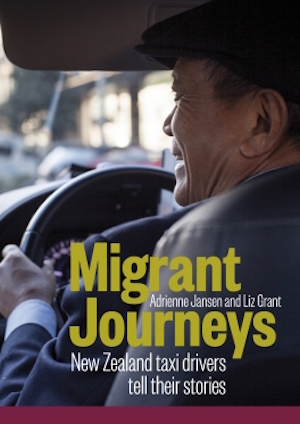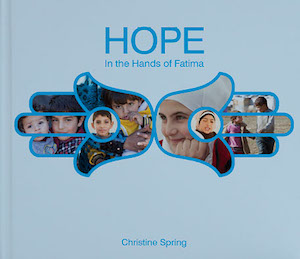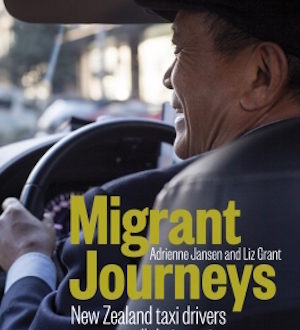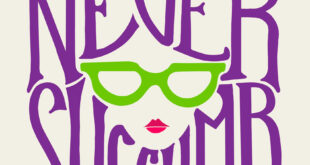 New Zealand taxi drivers share their stories.
New Zealand taxi drivers share their stories.
Taxis are often the only place where we have an opportunity to meet migrants from many different countries. So to broaden our knowledge of the refugee and migrant experience the authors, who have taken a few taxis in their time, asked drivers to share their stories: why they came, what it was like to settle here, how they got into the taxi business, and how they see New Zealand and New Zealanders
Out of the fourteen drivers who agreed to be interviewed the majority were men. There were only two women. All have all been in New Zealand for a considerable time.
I found it especially interesting to read their often horrific stories of their previous lives in troubled and war torn countries. They really appreciate the fact that New Zealand is a safe haven where they can have a peaceful life
But settling in was not easy and there were hurdles to overcome, Often their lack of English and the unwillingness by employers to recognize their foreign qualifications closed the door to many jobs for which they would have been well qualified.
Although driving a taxi was not what many had hoped to do it turned out to be a good job for most with flexible working hours and sufficient income to provide for their families. They find kiwis are tolerant and they are deeply grateful to those who have gone out of their way to help them to settle in to their new life. Only drunk passengers who often hurl racial abuse at them are a bother.
Sunny Kong, a refugee from Cambodia has driven a taxi here for many years. He arrived here in a very thin shirt and when he got to the Mangere Refugees Resettlement Centre in Auckland he said to his wife:
Oh dear. I think we came to the wrong place. We are going to die in this bloody cold country.”
After a chilly start he battled his way through several redundancies before deciding that taxi driving would allow him to be self-employed. It has turned out to be a good life although he never became rich as he spent a lot of money bringing 30 of his relations here.
Having driven his taxi for 24 years his main focus is now community work. He is very active in the Cambodian community but also belongs to the Karori Golf Club where he organized the Cambodia Cup every year and the money they raised was given to the Mary Potter Hospice
Muneer Oraha, a refugee from Iraq is the managing director of Kiwi Cabs, a very successful taxi company. Many of his drivers also come from Iraq.
“When people here think of Iraq they think of it as a rough place. When I think of Iraq I think of history and civilization,” he says.
He is an Assyrian Christian, born in Nineveh, an ancient city whose history goes back 6000 years. It used to be the capital of the Assyrian Empire. Assyrians invented the wheel, they created laws, and they knew astronomy and had very advanced technologies.
When asked “Why he called his company Kiwi Cabs if so many of the taxi drivers in his company come from Iraq he said“Wherever we live, we want to be part of it. I am living here; I want to serve this place as well as we can”
The overall impression I had of the taxi drivers in this book is that they are good people and solid citizens. They work hard to look after their families, to educate their children and are active in their communities.
It’s a small world. When I shared this book with my son he recognized one of the taxi drivers. He had had a short ride in his cab from the city to the top of Mount Victoria where he house sits. There would not have been enough time for a long conversation so he especially enjoyed reading about this migrant’s experience.
Migrant Journeys: New Zealand taxi drivers tell their stories
by Adrienne Jansen and Liz Grant. Publisher: Bridget Williams Books. RRP $39.99
 HOPE in the hands of Fatima
HOPE in the hands of Fatima
Last December photographer Christine Smith accompanied Sonny Bill Williams, TV3 journalist Mike McRoberts and UNICEF representatives on a visit to Syrian refugees in the Bekaa Valley, Lebanon .It was a life changing experience for her and resulted in HOPE in the hands of Fatima, a small book of photojournalism in which she has recorded the journey.
They visited one of the fenced Safe Spaces that have been created for refugee children.The sun was out that day and the children were playing happily outside tossing a ball around and practising a Christmas pantomime
“At first glance,” she wrote “You could perhaps wonder what all the fuss is about and think do these laughing, smiling children really need our help?
Then she realised that without the intervention of UNICEF and Beyond Association (a local NGO) there would be no safe and friendly place where these refugee children could spend part of each day to learn and to work through the traumas they have experienced in a playful way.
Afterwards the children have to walk home through grounds strewn with rubbish and sewage to their makeshift tented accommodation.
Without savings and no Government benefits life is extremely harsh for their families. Parents are legally prohibited from employment so many children are forced to go out to work to earn a paltry wage to put food on the table.
Teenagers and young adults face other difficult challenges. Young men find it hard to resist bribes of $500 a month to go back to Syria and join in fighting. To help them to be strong and to choose a nonviolent future counselling and alternative opportunities are provided for them.
Many girls as young as 12 are given away by their families to be child brides. Parents hope that this will safeguard them but it is more likely that it will lead to a life of abuse and violence. The look in the eyes of one such fifteen year old child bride in a photograph stays in my mind. It speaks volumes about her tragic life.
UNICEF and its associated NGO’s provide life skills and education classes for both mothers and children. The more education they have, the more they will both learn to speak up and the more likely it will be that the girls can be protected from an early marriage.
The stoic, resigned, and sometimes anguished expressions on the faces of mothers nurturing their young children tell their stories in a way which words can’t express
I was shocked by the numbers cited in this book. There are 500,000 Syrian refugee children of pre-school, primary and secondary school age in Lebanon,
I only wish that we in New Zealand would open our hearts and doors to more of these families and give them a chance for the decent future that they are so hoping for. The number of refugees we accept each year will go up from 750 to 1000 in 2018. But this is still so very much less than what other countries are doing. In the meantime the best we can do is to give some financial support to help families in these camps.
All the author’s royalties and net proceeds from this book will be donated by Beatnik Publishing to UNICEF NZ for the Syrian refugee programmes in Lebanon,
Title: HOPE in the hands of Fatima. Author: Christine Spring RRP $40.00 Publisher: Beatnik
By Lyn Potter. Read more here.









Join the Discussion
Type out your comment here:
You must be logged in to post a comment.